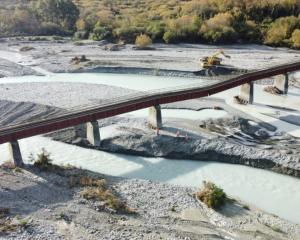High-level discussions are taking place to stop councils providing water services and pass control to a handful of companies run on commercial lines.
A senior local government source said one option was to have four or six water and wastewater companies for the whole of New Zealand operating outside the normal council structure.
The model could be the Super City where a council-controlled organisation, Watercare Services, provides water and wastewater services to 1.5 million Aucklanders. It has led to lower water prices and brought forward upgrades in places such as Pukekohe and Helensville.
The reasons for having fewer water providers are understood to include the inability of small councils to afford costly infrastructure and the $58 million debt from the Mangawhai sewage treatment scheme crippling the Kaipara District Council.
The discussions are part of the Government's "Better Local Government" reforms which include an infrastructure expert advisory group looking at water and other issues.
Local Government Minister David Carter said the idea of having fewer water suppliers had not been discussed with him as part of the local government reforms, but he had heard similar ideas from organisations such as Water New Zealand.
Water New Zealand chief executive Murray Gibb said the lobby group supported water rationalisation and had been asked to contribute to the Government's expert advisory group.
Local Government New Zealand declined to comment. A spokesman said there had been a number of studies looking at the delivery of water services over the years.
Auckland Mayor Len Brown has drafted a letter to Watercare board chairman Ross Keenan saying the council is aware of the industry debate on the future of water.
"Council expects that Watercare will not engage in these governance issues as it considers these matters to be the sole prerogative of the shareholder," the letter said.
Mr Keenan said Watercare got involved in operational matters outside Auckland, such as helping with the Christchurch earthquakes, but had always stayed well away from consolidation, ownership and governance matters.
Water, he said, was an extremely sensitive issue with a great fear of privatisation and the safe territory for Watercare was to stay away and let others take the initiative.
Asked if the Watercare model could work elsewhere in New Zealand, Mr Keenan said yes.
He said he had been astonished at the efficiencies and benefits gained through consolidation under Watercare despite initial misgivings.
- Bernard Orsman, New Zealand Herald












